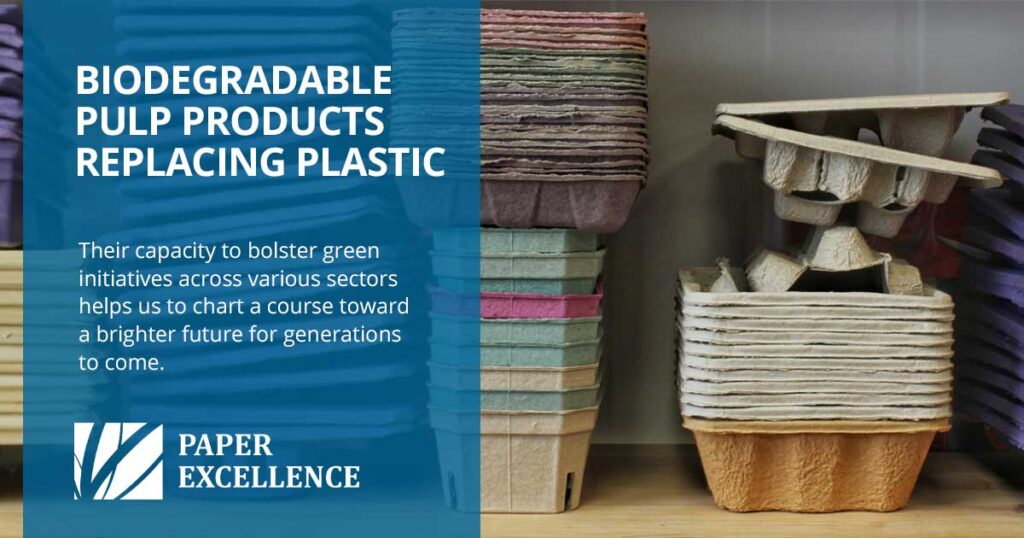
As society rallies to combat climate change, companies and organizations spanning all sectors have spurred into action, reevaluating and revitalizing their sustainability strategies to curb their carbon footprint. Among the widespread green initiatives sweeping across industries, a notable trend involves substituting plastic materials with an eco-friendly alternative sourced from trees to form biodegradable pulp products.
Creation of Biodegradable Pulp Products
Pulp is raw material derived from the natural fibers of trees and plants and recycled materials like paper, cardboard, and newspapers. From a sustainability standpoint, the allure of biodegradable pulp is undeniable, as it is recyclable and compostable. Because of its superiority in reducing environmental impact, new doors to sustainability have been opened in comparison to plastic or Styrofoam, which takes hundreds of years to decompose. Biodegradable pulp products also have many other advantages that differentiate them from other eco-friendly alternatives, such as reducing energy consumption and shipping costs. They can accomplish this by producing robust, lightweight products that can withstand the same amount of pressure with a lighter material.
Biodegradable Pulp Products Across Industries
Food and Beverage
As consumers become more mindful of the sustainability of the products they purchase, it has become increasingly more favorable for businesses in this sector to adopt green initiatives. Biodegradable pulp products have revolutionized packaging within the food industry with their eco-friendly properties. From food containers to disposable cutlery and bottle trays, these newly materialized products have been swiftly adopted by the industry. Beyond their primary advantage of curbing plastic waste, this sustainable alternative also yields impressive savings of approximately 10-15% compared to conventional packaging materials.
Tech Industry
Another industry that has reaped the benefits of biodegradable pulp products is the electronics industry. When molded, the material provides ideal protective packaging for fragile tech items. In addition to this, qualities such as high-level shock absorption and the ability to provide a snug fit have made biodegradable pulp products a fantastic alternative for the transportation and casing of fragile electronics.
Agriculture Sector
The Agriculture Sector has also found unique and innovative ways to capitalize on biodegradable pulp products. A great example was the new approach for seedling cultivation and plant propagation involving biodegradable pulp trays. This was an easy and seamless switch from the original plastic pots. Seeds can now be placed into eco-friendly trays and directly planted into the soil when ready.
Textile Sector
Many issues concerning environmentally friendly practices have arisen in the textile sector due to the damage caused by synthetic fibers such as polyester and nylon. Manufacturers have turned to biodegradable alternatives derived from bamboo and wood pulp for new green material sources. Aside from the reduction of waste, the fibers also show promise in this industry as they can produce breathable, moisture-wicking materials that are perfect for textile applications.
The Sustainable Future of Biodegradable Pulp Products
As we advance on the path to sustainability, biodegradable pulp products emerge as valuable allies in our mission to combat climate change. Their capacity to bolster green initiatives across various sectors helps us to chart a course toward a brighter future for generations to come.
